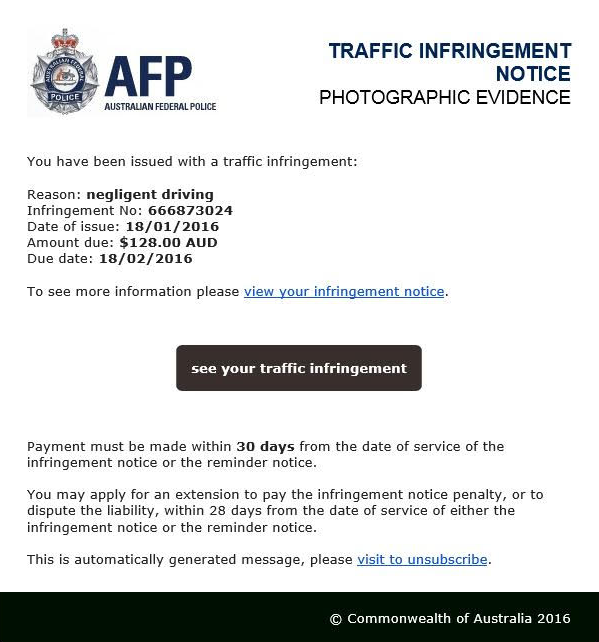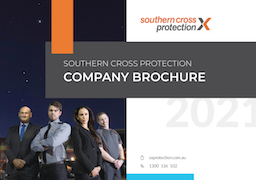We urge people to be alert to an email scam where scammers posing as the Australian Federal Police (AFP) request payment for a bogus Traffic Infringement Notice.
An alert on this scam was previously issued by the AFP in April 2015, and it has recently resurfaced across Australia.
AFP national cyber crime coordinator Superintendent Adrian Norris said the email contained a computer virus.
“This email has taken off widely today and looks legitimate, and many people have been compromised, so I would urge people to be vigilant,” Superintendent Norris said.
“The AFP never sends out traffic infringement notices via email, so if you have received an email that purports to be from the AFP and have doubt about its authenticity, do not make a payment or provide personal details.”
The email features the AFP logo as well as a Commonwealth of Australia copyright, however the email address is not from AFP, and there is no vehicle plate number or date of incident.

If you receive any such email, delete it from your computer immediately.
The scam email initially asks the recipient to pay a fine of approximately $150. If links within the message are clicked, the recipient’s computer may become infected with malware which renders it inoperable. At that point ransomware is activated where the recipient is asked to make a payment to reactivate their computer.
Protect yourself:
- Do not click on links from unknown senders as they may contain malware. Some sites automatically download malicious software on your computer.
- Only download files that are from a reputable source. You should never download a file that is a program (for example, having the file extension .exe) unless you are absolutely sure of where it is coming from and what it does.
- Be careful of storing sensitive personal data on your computer. If a scammer gains access to it, it could lead to identity theft and money fraud.
- Keep your computer security up to date with the latest anti-virus and anti-spyware software.
- If your computer’s security has been compromised, you might need to contact your anti-virus software provider or a computer specialist to remove the malware.
Report scams to SCAMwatch by calling 1300 795 995 or by going to the Report a Scam page on their website.






